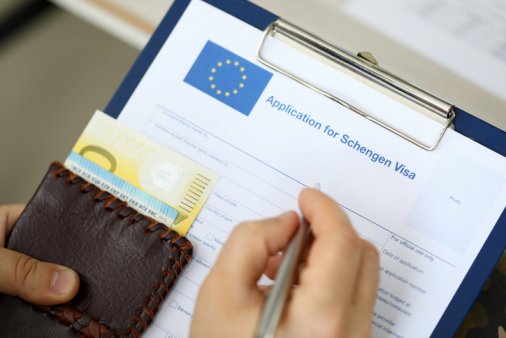All You Need to Know About Bringing Prescription Pills on a Plane
Learn how to safely carry prescription medications on international flights. Understand TSA regulations, medication screening, and country-specific rules.
Can You Bring Prescription Pills On A Plane Internationally?
Are you planning an overseas trip and not sure if you can bring your prescription pills on the plane? You are not alone. Taking medicines on an international flight, even if they are prescribed by a doctor, requires understanding the regulations and preparing accordingly. Below, you will learn how to travel internationally with prescription drugs safely.
Can I Carry Prescription Pills on an International Flight?
Yes, you can generally take your prescription medication along on an international flight. But it requires more planning than packing your toiletries. You'll need to understand the regulations of both the United States and the country you're visiting. For example, if you’re flying from the U.S. to Australia with medication for a chronic condition, you need to ensure that your medication is legal in Australia. This is because some common medications allowed in the U.S. may be restricted or even banned in other countries.
How do I Carry Prescription Medication on a Plane?
For starters, it is a good idea to keep your pills in their original prescription bottles when flying internationally. This helps provide clear proof that the medication is legally prescribed to you. Having the original bottles with the pharmacy labels attached makes it easier for airport security and customs officials to verify your medications.
TSA allows prescription pills in both carry-on and checked baggage. However, it is advisable to keep them in your carry-on bag. This ensures you have access to them during the flight and prevents issues if your checked baggage is delayed or lost. If your medication gets lost or stolen, along with your luggage, travel insurance with baggage coverage can assist in replacing it. You may also consider medical coverage in your travel insurance plan as it can cover medical needs abroad, including emergency doctor visits and hospital stays.
When traveling internationally with liquid medications, TSA recommends carrying them in containers of 3.4 ounces (100 milliliters) or less if packed in your carry-on bag. If you have medically necessary liquids that exceed this limit, you should declare them to the TSA officers at the checkpoint. They are allowed, but you need to inform the security staff about them.
Another thing to take notice of is that you should ensure proper considerations for temperature-sensitive medications. For example, insulin for diabetes often needs to be kept cool. In such a case, use a portable cooler or insulated bag with gel packs to maintain the required temperature. Inform the airline staff and security personnel about the process to ensure it is handled correctly during the flight.
Also, if you need to carry injectable medications or medical devices, like EpiPens or insulin pens, these should also be packed in your carry-on bag. You would have to declare these items at the security checkpoint so they can be screened separately. Make sure you have a letter from your doctor explaining the necessity of the medication or device. This is crucial to avoid delays and ensure you have access to your medical supplies when needed.
Security Screening at Airports
As discussed above, any medication you are carrying has to be screened separately from the rest of your belongings. When you arrive at the security checkpoint, inform the TSA officer that you are carrying prescription medications. This helps them understand what to expect during the screening process. You may be asked to remove your medications from your bag and place them in a separate bin for screening.
If you prefer not to have your medications x-rayed, you can request a manual inspection. However, be aware that this may take additional time. You must also carry a copy of your prescription and a doctor’s note to avoid any complications during screening.
Can you take non-prescription medication on a plane?
Over-the-counter (OTC) medications like pain relievers, cold medicine, and vitamins are allowed both carry-on and checked luggage. Many travellers bring common OTC medications to manage minor health issues during their journey like Tylenol, Advil, allergy medicines, Pepto-Bismol or Tums. It is best to keep them in their original containers though.
When traveling internationally, some countries have specific regulations regarding certain OTC medications. For instance, ingredients like pseudoephedrine, commonly found in decongestants, may be restricted in some countries. Before you travel, check the regulations of your destination to ensure that the medications you are carrying are permitted. If any ingredients are restricted, consult your healthcare provider for alternatives that you can take with you.
Taking Medication Overseas
It’s not just about packing your medicine and clearing security at the airport; there’s more to consider. You need to be aware of the laws regarding medications in your destination country. Some medications that are common and legal in the U.S. may be illegal or require special permits abroad. Opioid painkillers like OxyContin are tightly controlled in Japan due to concerns about abuse and diversion. You can usually find this information on the website of the destination country's embassy or consulate.
If you need to refill a prescription while abroad, be aware that many foreign pharmacies cannot fill U.S. prescriptions, so it’s crucial to have a sufficient supply before you travel. In case you need to seek medical help, find out in advance where you can access healthcare services in your destination country. Carrying a letter from your doctor detailing your medical condition and the medications you take can also be helpful.
What to do if My Medication is Not Allowed?
If you find out that your medicines are not allowed in your destination country, don’t worry; there are alternative options to ensure you stay healthy during your travels. One of the best strategies is to discuss potential alternatives with your healthcare provider before you leave. They can prescribe different medications that are legal in your destination or suggest over-the-counter options available there.
Your doctor can sometimes provide a letter explaining your medical condition and the necessary medication, which can help a local doctor prescribe an equivalent medication. This is especially useful for long-term travelers who might run out of medication while away.
FAQs
1. What do you do if your medication is lost or confiscated at the airport?
If your medication is lost or confiscated, contact AXA travel insurance assistance. They can help you find a local doctor to prescribe a replacement and cover any associated costs.
2. How do I get my prescription refilled while traveling abroad?
If you run out of your medication on your international trip, visit a local doctor with your original prescription and a doctor’s note explaining your condition.
3. Are there any restrictions on bringing supplements or vitamins along?
Check the ingredients of the supplements or vitamins and check the regulations of your destination country to make sure that they are allowed. Please keep them in their original packaging to make the security checks smoother.
4. What should I do if I forget to pack my medications before leaving for the airport?
If you realize you forgot to pack your medications, contact your doctor or pharmacist immediately. They may be able to advise you on how to obtain a replacement.
Also Read: Pre-existing Condition, TSA Prohibited Items

Get AXA Travel Insurance and travel worry free!
Travel Assistance Wherever, Whenever
Speak with one of our licensed representatives or our 24/7 multilingual insurance advisors to find the coverage you need for your next trip Get an instant quote!




